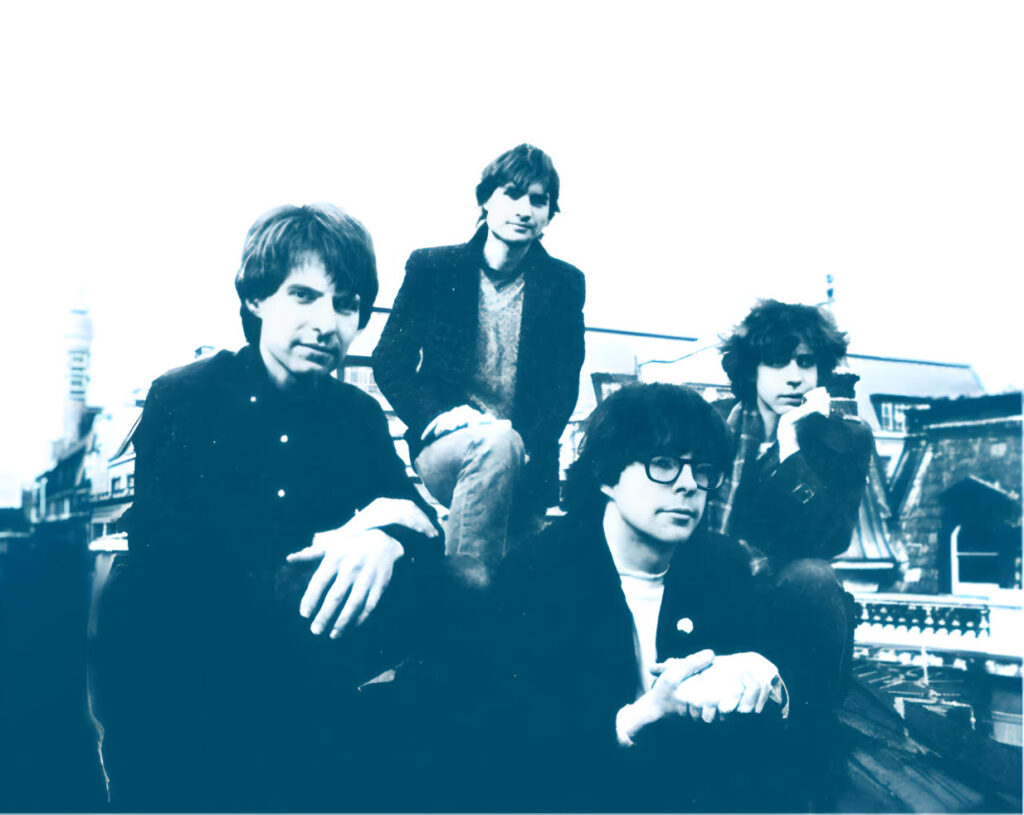
Formed in New York in the late 1970’s by four guys out of North Carolina, the dBs are reuniting for a tour. The group frequently appeared at CBGB, Maxwell and other venues in New York during their early days. The groups first two albums were released in the U.K. but never in officially in the U.S. until now. Propeller Sound Recordings has recently re-released the dB’s debut album Stands for deciBels and later in 2024 will be re-releasing the groups second album Repercussion. With the re-releasing of these two albums the original members of dBs have gotten back together for several tour dates this fall. I was able to visit with drummer Will Rigby about the upcoming tour, the reissuing of the two albums and much more.
The dB’s is one of those bands that received little airplay and attention in the US during the groups early days. Their first two albums were never released in the U.S. but thanks to Propeller Sound Recordings U.S. fans can finally get their hands on the dB’s Stands for deciBels and Repercussion. Along with the re-releases, the original members of the dBs are embarking on a tour this fall. The members of the group emigrated to New York in the late 1970’s and formed the band, frequently appearing at the famed CBGB. The group’s first album was released in 1981 in the U.K. but it was never released officially in the U.S. Pitchfork cited Stands for deciBels among its 100 Top Albums of the 1980s. I was able to visit will Will Rigby to talk about the re-issues, their upcoming tour and more.
Okay, just to get started for those who don’t know the history of the dB’s, can you give us a little history of the band?
Will Rigby: Yes, the four of us grew up in Winston-Salem, North Carolina and made our way sort of one by one to New York in the late 70s and started the dBs in New York City. It pretty much remained a New York City band for the entire time it existed, which was until 1988. The original leader of the group was Chris Stamey. Gene Holder’s the bass player, I’m the drummer, Will Rigby. We played a handful of shows just as a trio before Peter Holsapple joined, in the fall of ’78 to give the classic four-person dBs lineup. We put out our first album in 1981, Stands for deciBels, which has just been re-released on Propeller Sound Recordings. Our second album came out in 1982, it was called Repercussion, both of them came out in Europe not the United States at the time. Our third album was without Chris Stamey. It came out in 1984 called Like This. Our fourth album came out in 1987 called The Sound of Music, and then we broke up in 1988. We did a reunion album in 2012 called Falling Off the Sky.
How come the first two albums were not released in the U.S.they were released to other places, but not the U.S.
Will: We just couldn’t find a label that was interested in us in the United States. It’s very unfortunate. We certainly tried.
How did the reissuing of those two albums this year, how did that come about?
Will: The basic impetus is the interest of Propeller Sound Recordings to make dB’s recordings available. They had already released, a couple of years ago, they released an album called ”(I Thought) You Wanted to Know” that is a compilation of early pre first album recordings by the dBs. Some of it’s live. It’s a whole bunch of studio demos. So they put that out and were eager to put these out as well. They’re putting out, they already put out the first album they’re putting out the second album. in October.
What has been the response after the first album was re-released this year?
Will: It’s been a good response. The album has always gotten good reviews, and it still does, and it’s gotten, you know, a fair amount of notice in the past, music magazines and websites as well.
Was the group taken aback when you were approached to re-release this album?
Will: I wouldn’t say we were taken aback. We were pleased. Um, I would say, yeah, we’re, we’re glad to have it out in the United States. It’s really a good thing. Uh, it’s never come out on vinyl before this year in the United States. So we’re pretty pleased about that.
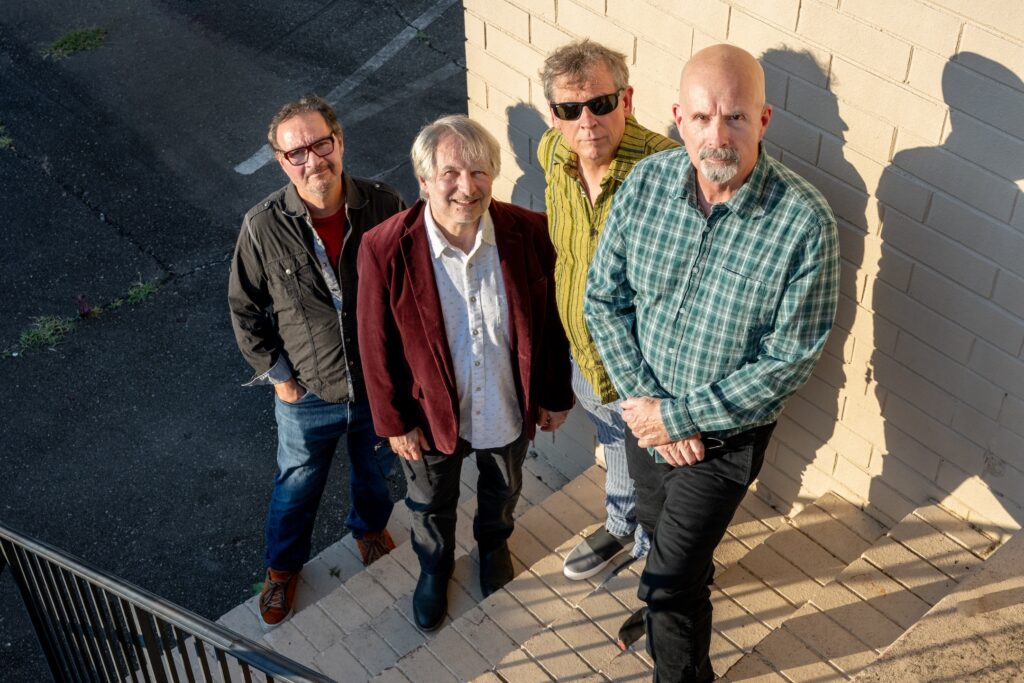
I understand that all the original members are getting together for a tour this year because of the reissue. Talk about that tour.
Will: Yeah, we’re playing, so far we have 15 shows confirmed and there might be a few more. We’re playing North Carolina, DC, Philadelphia, Jersey City, let’s see, Athens, Atlanta, Charlotte, Asheville, Chicago, Minneapolis, Milwaukee, San Francisco, Los Angeles, and there may be a few more added. all before the end of the year, mostly in September.
What’s it like, the four of you getting back together again and playing again? I know you said you got back together in 2012 but what’s it like now, 12 years later, to get back together again and go back on the road?
Will: We’re playing quite a few shows this time. we only played a handful of shows in 2012. It’s great that we’re all still capable of doing it, that we’re all still healthy and around to do this. So we’re pretty excited about that.
Any possibilities of working on new music while you’re together?
Will: I’ll never say never. We don’t have any plans to. There’s some existing recordings that are unreleased that we may try to put out, but nothing brand new, and we’ll see. – It’s a possibility. I wouldn’t say it’s likely, but it’s a possibility.
Does it feel like old times, the four of you being back together?
Will: Yes and no, and in one way it certainly is, ’cause we’re playing the same songs that we played 40 years ago. But it’s also, we’re all, you know, pretty different people from back then. So it’s not exactly the same, but it’s pretty similar.
As you look back over the career and the existence of the dBs, what’s one of the big highlights for you going back over all those years?
Will: Oh God. Highlight. There were some pretty exciting shows. I mean, we played, we played so many shows, but playing Chicago, I would say, was probably a highlight. That was a place where we got played on the radio and consequently were pretty popular. So I would say that playing Chicago was always a high point of any tour. We were always looking forward to that.
Is there any one song in your catalog or even one album that just really sticks out for you that just really has a super soft spot in your heart for you?
Will: Well, the obvious answer is “Black and White,” which kind of stands alone in terms of its recognized claim to being the classic. I think everybody pretty much agrees on that everybody in the band does and you know, there’s other songs that are really great from the Stands for deciBels album, I would say I’m in love with “Cycles Per Second” “Big Brown Eyes” Those are some strong songs. Repercussion, the second album, which is coming out in October, is, has, it’s basically like a really strong album with, like, not really a weak, weak spot on it. There’s a lot of great songs. “Love is for Lovers” from the band after Chris quit. That’s a pretty big one. “A Spy in the House of Love”, that’s a big one. I’m a pretty big fan of “Think Too Hard”, which is on The Sound of Music. I think that’s one of our best songs.
Prior to Propeller Sound Recordings coming to you about re-releasing these albums, did you ever think that you guys would get back together again and do more shows again?
Will: No, not really. It was not something that was on anybody’s radar. I have continued playing. somewhat with Peter over the years, and even occasionally with Chris, and for instance, my wife Florence Dore made an album also on Propeller Sound Recordings a couple of years ago that Peter played on, and he didn’t do the tour, but Gene did. So she had the dB’s rhythm section on tour with her. This was like in 2022 and 23. That tour has come to an end, but there’s quite a bit of dB’s involvement in that project, and I played in the Peter Holsapple combo for a couple of a few years earlier, like, when was that 2016 to ’18 or 2017 to 2020 or something like that.
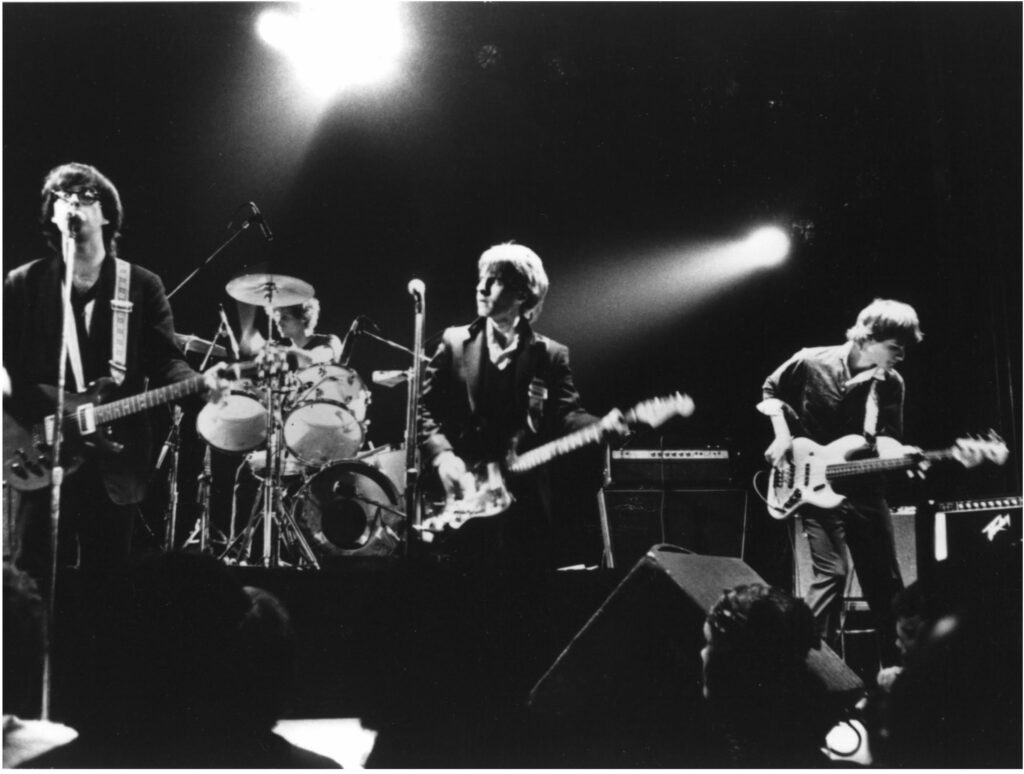
As you embark on this tour, what’s the one thing that you hope it accomplishes?
Will: Well, other than making money, I think we would just be like trying to lay claim to our place in music history. I guess that’s like what we’re all about now. making sure that we’re remembered to the extent that we deserve.
And how do you view the dB’s place in music history? How do you look at it now?
Will: That’s kind of a tough one. I think we have an honorable spot. like, we’re not famous like, you know, Tom Petty or somebody like that. But I think our albums are really good and, uh, unusual in some ways and are considered classics by quite a few people, including some very, some famous people and some influential people. So I think laying claim to our heritage would be my answer.
The albums did receive quite a bit of acclaim, and as you mentioned, a lot of people had good things to say about it. Is there any regret on the dB’s part that they didn’t do better than what they did?
Will: Well, I would say there’s regret in the fact that they didn’t come out in the United States We’d certainly wanted them to come out in the United States that’s the big market and we wanted to you know, get our songs on the radio and stuff like that, so It didn’t stop us. But not having an American label did slow us down and somewhat limit us in terms of, well, record company support, radio play, promotion, all the usual things that record companies do, we had to kind of do on our own.
Looking back at what the music industry was like when you started out in the 70s and the 80s and what the music industry looks like today, how do you compare those two?
Will: The music industry today, is just almost unrecognizable compared to what it was like in the 80s. It was a lot more finite back before the advent of digital recording. Digital recording has made were everybody’s house can be a recording studio. everybody can make a record, it’s really easy, and everybody does make records. So the amount of music that’s out there is just exponentially greater. But it’s also much harder to, I think, it’s much harder to make a living at because people don’t buy the physical product anymore. So artists can’t count on that income, and, you know, the royalty rate from streaming is really ridiculously low. So it’s harder to make money. It was not easy then, but it was simpler and somewhat more straightforward. Of course, there’s lots of opportunity in the digital era because everything is, you know, recording is and disseminating your music is very easy and can be done yourself without a medium, an interface like a record company. You don’t have to have that.
What words of advice would you give a new artist trying to enter into the industry in this day and age?
Will: Boy, that’s a tough one. Well, follow your heart, I guess, would be the best single advice. Don’t let other people talk you into doing your music some other way than what you think is right.
Will, I want to thank you so much for taking time to do this. I greatly appreciate it.
Will: Oh, well, you’re welcome.
Wishing the dBs much success on the tour in September.
Will: Great, well thanks for talking to me.
Interview by I’m Music Magazine Writer Tim Board
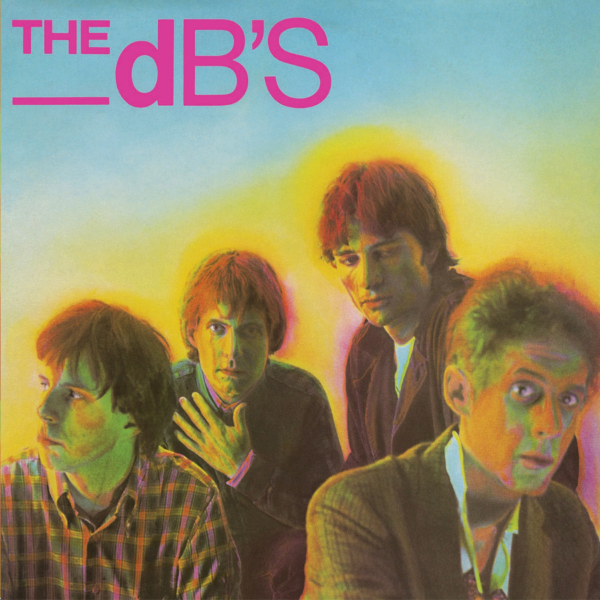


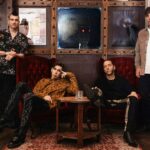
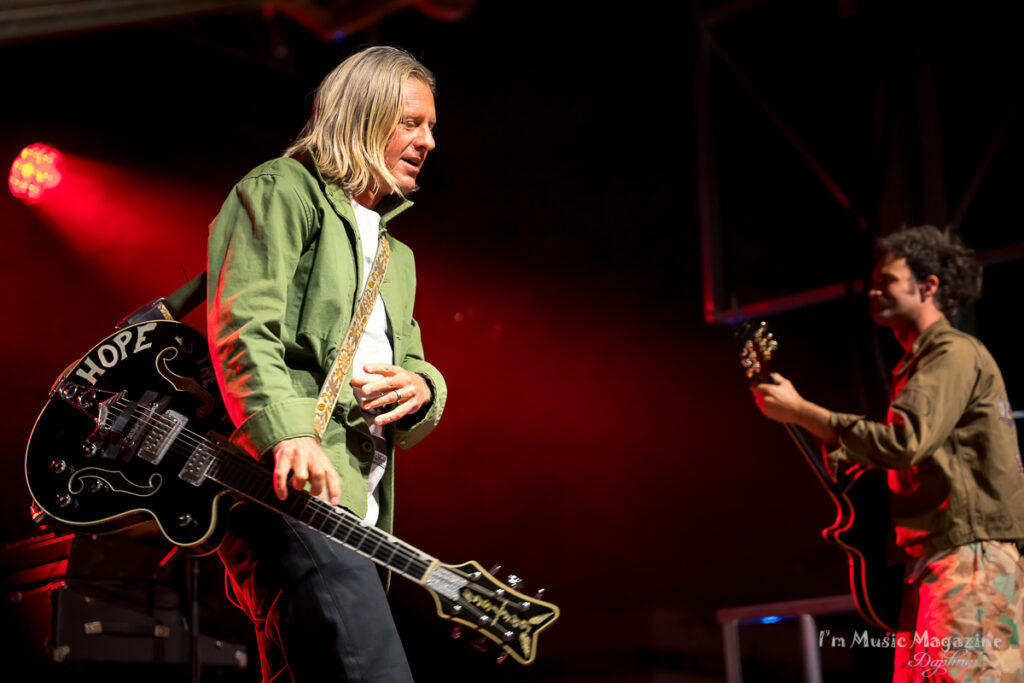
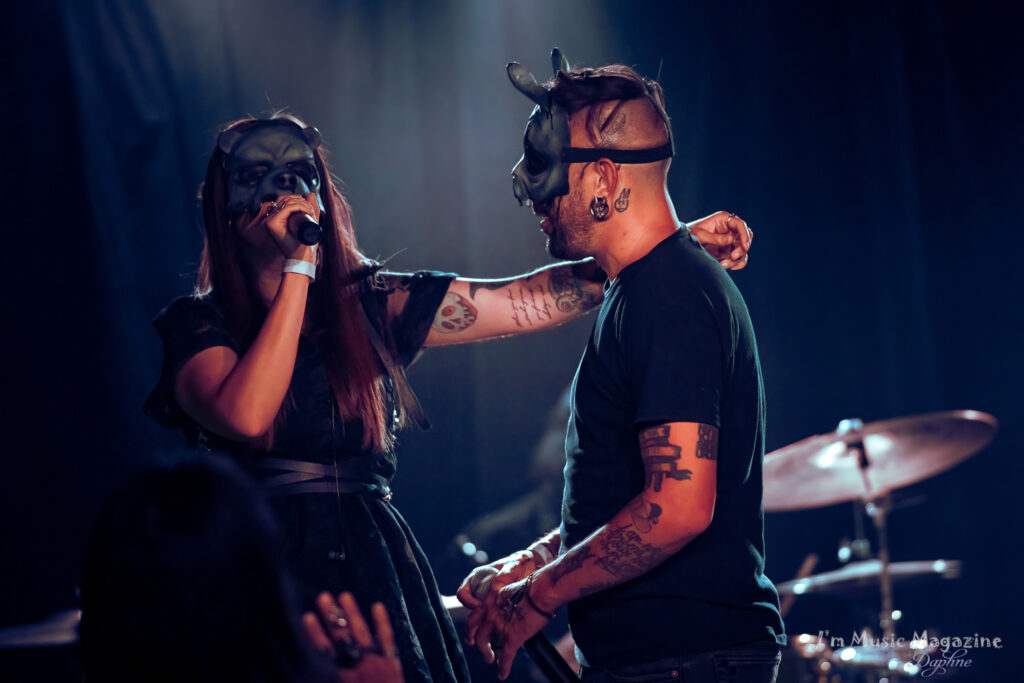
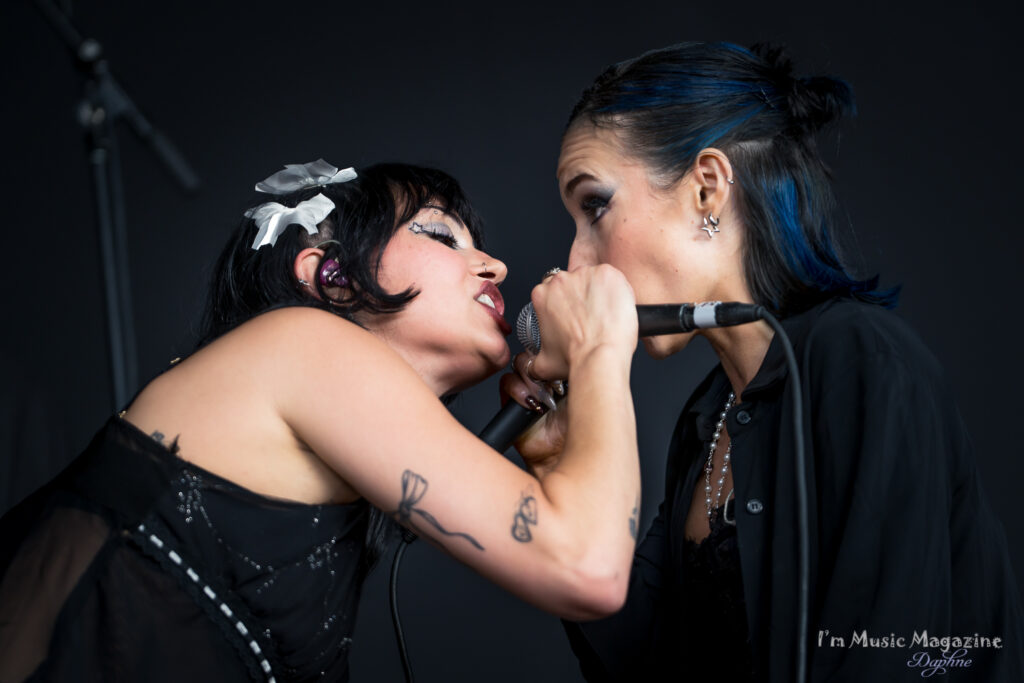
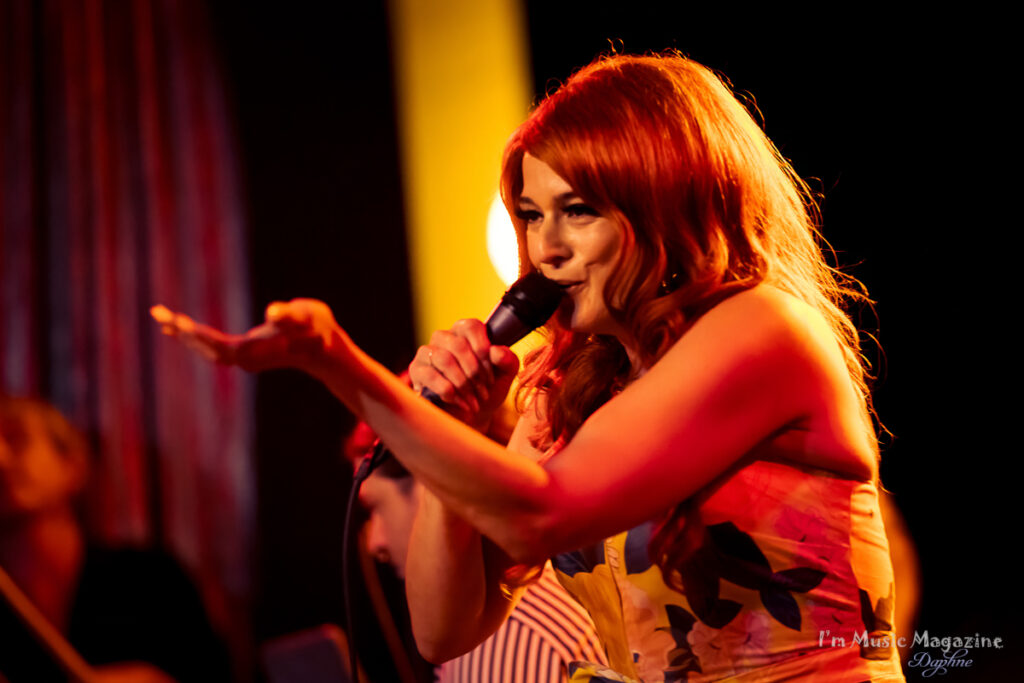
Love this interviews! Fan of the band since “Like This”, and the song “Amplifier” was the gateway. Saw the band last Sunday in Jersey City. The sound was awesome, and the band was tight. Exceeded all expectations, a true bucket list check-off. Will is a beast on drums, that was the revelation!
Thanks so much for checking out the interview Chip!